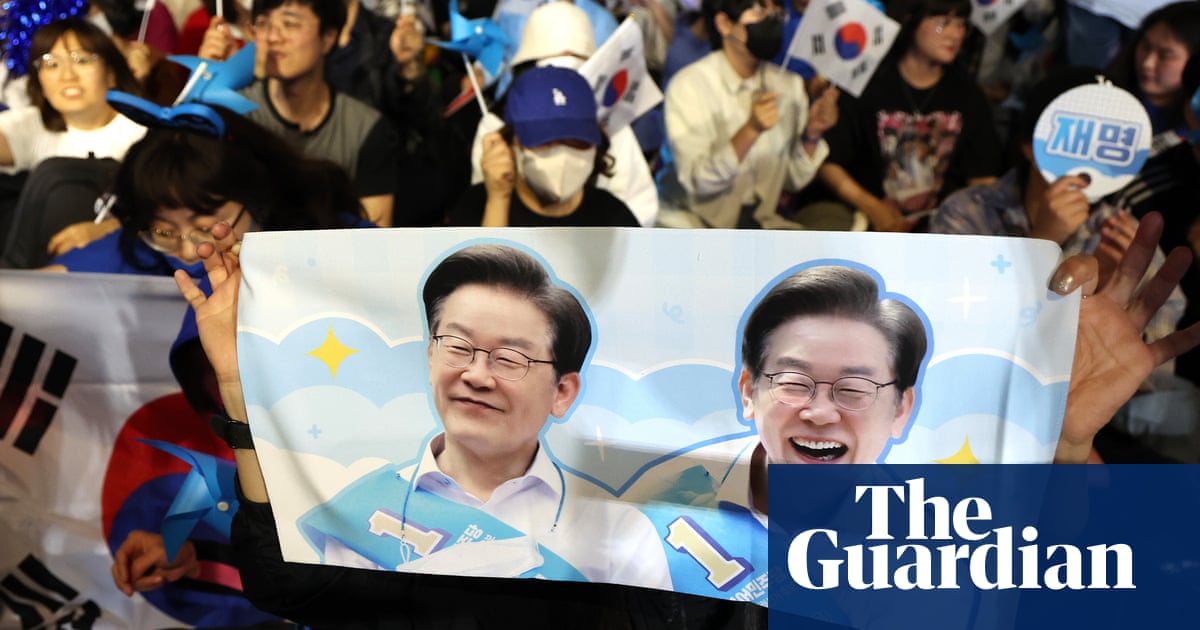Lee Jae-myung will need to draw on his considerable survival instincts as he attempts to steer South Korea out of thepolitical morass of the past six months.
The liberal candidate,who on Tuesday became the country’s president at the third attemptafter defeating his conservative rival, Kim Moon-soo, has promised to govern for all South Koreans – and for good reason. After a swift transfer of power that will take him to the presidential Blue House on Wednesday, Lee will inherit a deeply scarred country.
He faces the task of restoring stability after his predecessor Yoon Suk Yeol’s disastrousattempt to impose martial lawin December, in what he said was an attempt to eliminate “anti-state forces”.
And Lee will be expected to move quickly to address domestic issues that have been largely sidelined whileSouth Koreaconfronted its biggest political crisis in decades: income inequality, the soaring cost of living and – a hardy perennial for South Korean leaders – how to resurrect dialogue with an increasingly erratic North Korea.
Lee, 61, a former factory worker who became a human rights lawyer before entering politics, is no stranger to adversity – or controversy.
He campaigned behind protective screens, wearing a bulletproof vest and surrounded by armed guards – an unprecedented precaution in democratic South Korea prompted by reported threats to his life and, in January last year,a knife attackin which he sustained neck injuries that required emergency surgery.
The threats to Lee are not only physical. He begins his single five-year term creaking beneath the weight of continuing legal cases that could plunge his presidency into crisis before it has barely begun.
Lee faces several charges – which he has denied – the most serious that he made false statement during a televised debate during his last presidential campaign, in 2022.
He brings experience of the rough and tumble of South Korean politics, having served as the former leader of the main opposition Democratic party, as well as stints as a governor and mayor.
South Korean media have described Lee as stubborn and determined, qualities they trace to his early years as one of seven children growing up in a poor family in Andong, North Gyeongsang province.
His education was hardly an ideal preparation for a career in law and politics. He frequently skipped classes at primary school – a 5km walk from home – and quit school as a teenager to work in factories to help his mother and sister, both toilet cleaners, pay the bills after they moved to Seongnam, near Seoul.
At 13 he was left with a permanent disability after his wrist was crushed by an industrial press. The injury meant he was later exempted from mandatory military service.
Lee eventually passed his school exams before studying law on a scholarship, passing the bar exam in 1986 before becoming a human rights lawyer and activist.
His transition to politics mirrored the struggling start to his education: he failed to get elected as mayor of Seongnam at his first attempt in 2006, succeeding four years later.
Having lost his party’s nomination for president to Moon Jae-in in 2017,Lee was defeated in the 2022 electionby Yoon by the slimmest margin – less than one percentage point – in South Korea’s history, after an acrimonious campaign that offered a foretaste of the division that would characterise Yoon’s time in office.
Leif-Eric Easley, a professor at Ewha University in Seoul, said Lee had benefited from public anger directed towards Yoon and his People Power party [PPP]. “Lee’s victory is not thanks to any particular policy proposals, but rather a result of Yoon’s spectacular collapse,” Easley said.
As polling day approached, Lee appeared to agree that Yoon was his greatest electoral asset. In a speech on Monday, he promised to revitalise the economy, reduce inequality and heal a divided country, cautioning that a vote for his PPP opponent, Kim, could reopen the door to Yoon’s “rebellion forces”.
He said: “If they somehow win, that will mean … the destruction of democracy, the deprival of people’s human rights, the normalisation of martial law and our country’s downfall into a backward, third-world nation.”
Lee was given temporary relief from his legal headaches after courts approved his request to postpone further hearings until after Tuesday’s election.
But any guilty verdict now that he is president would spark a debate over constitutional provisions that shield South Korean leaders from criminal prosecution, except against allegations of insurrection or treason. Observers wonder if presidential immunity would halt the prosecutions, or simply prevent any new charges from being brought.
Lee called Tuesday’s election “judgment day” for South Korea. He was referring to the opportunity it gave voters to move on from the Yoon era – but his own moment of reckoning may not be far behind.
